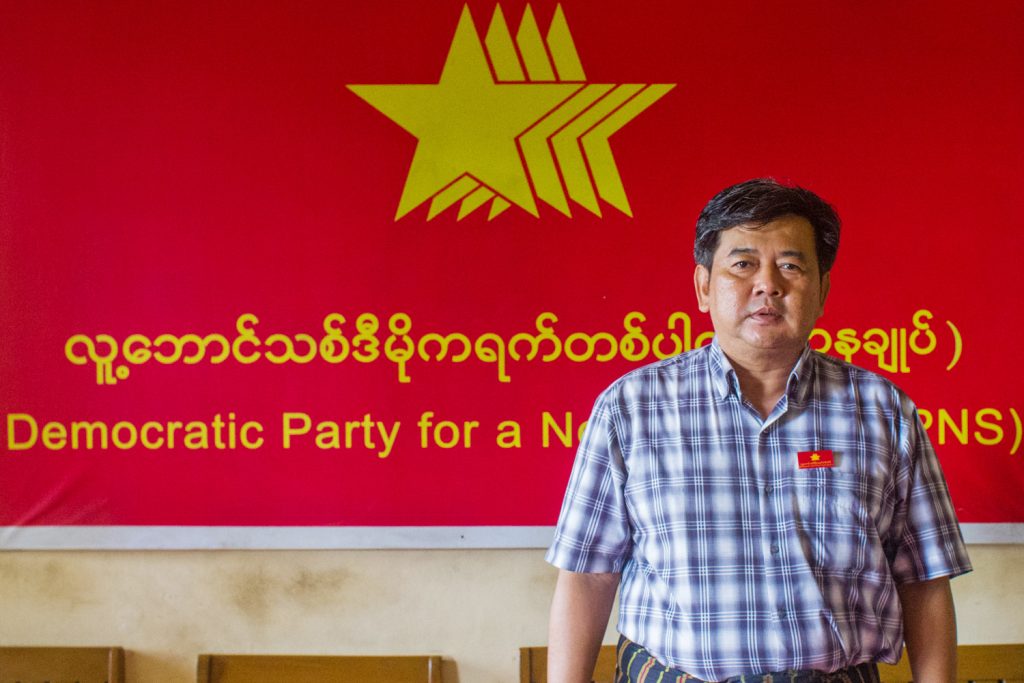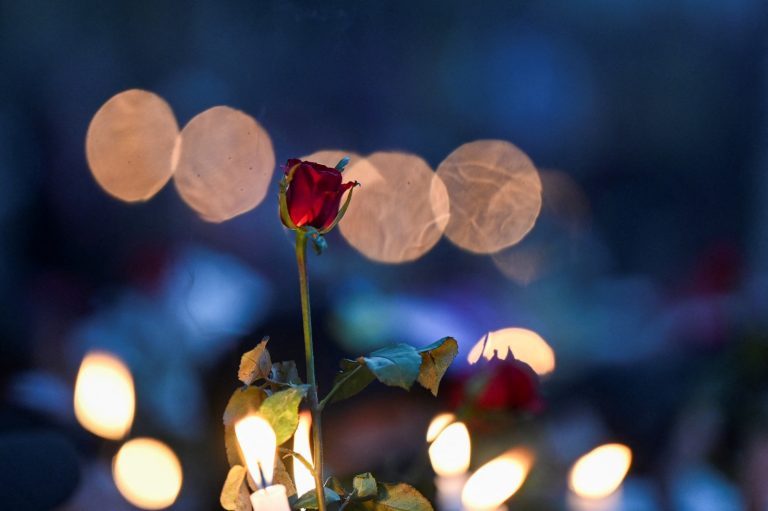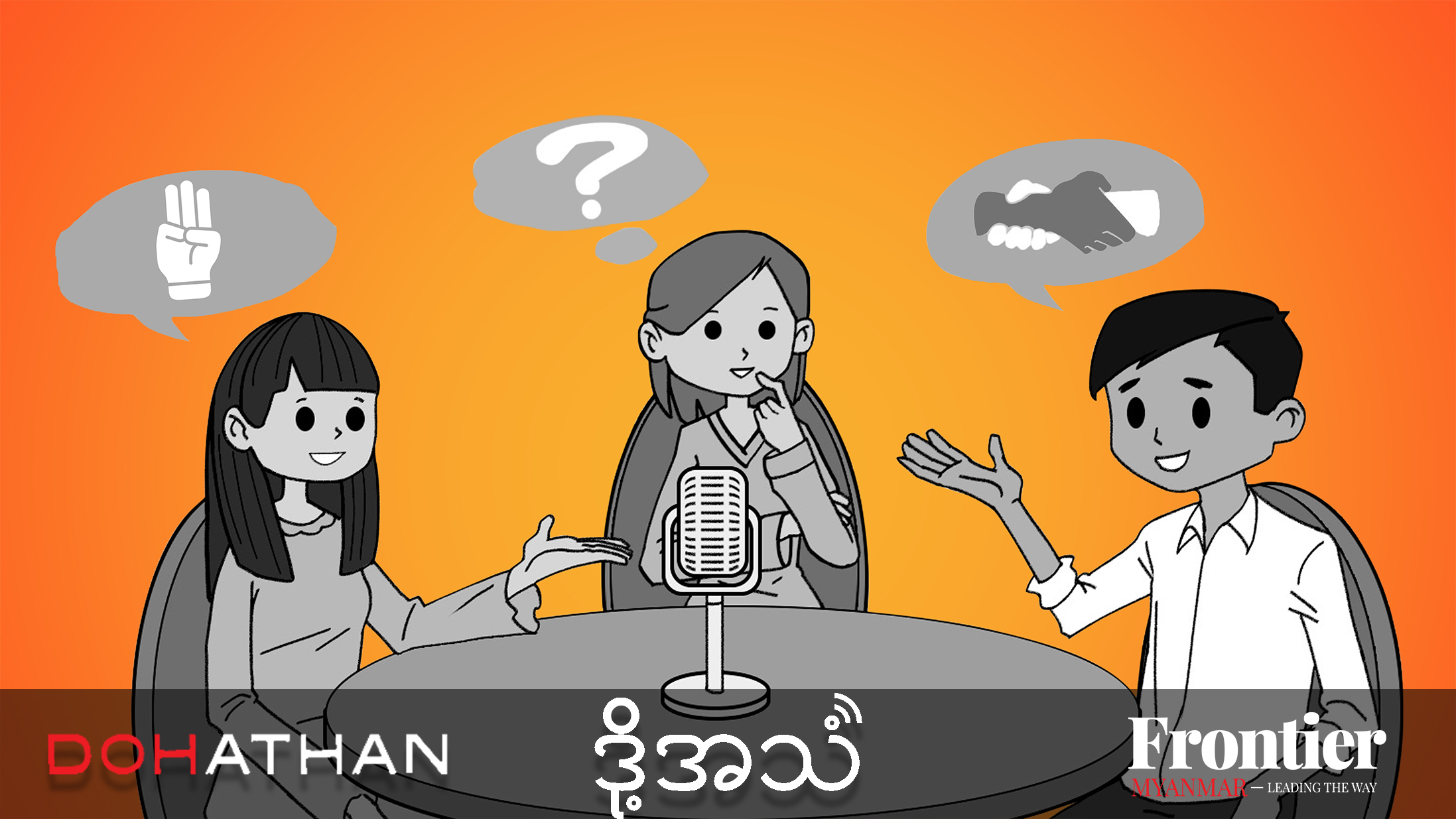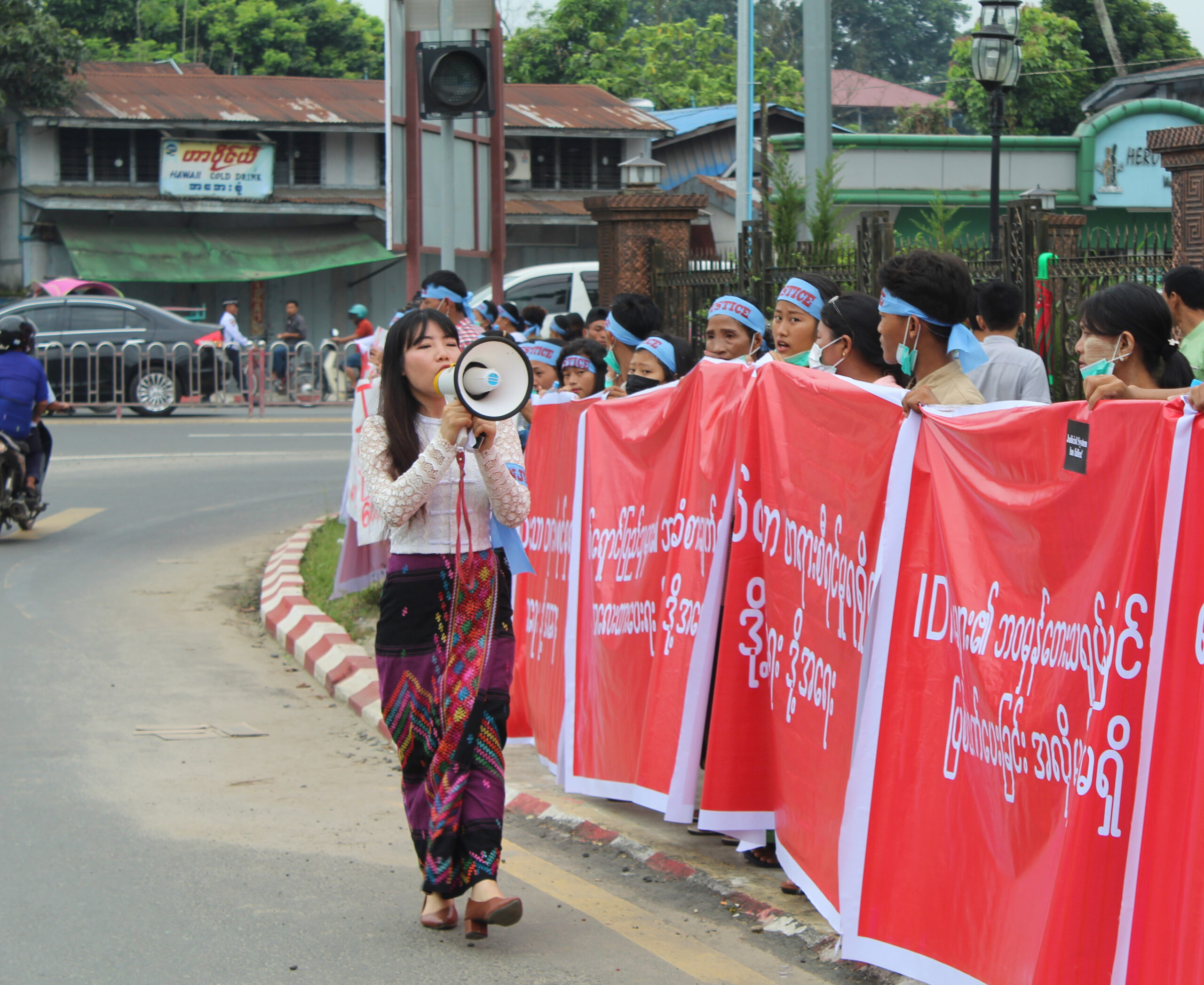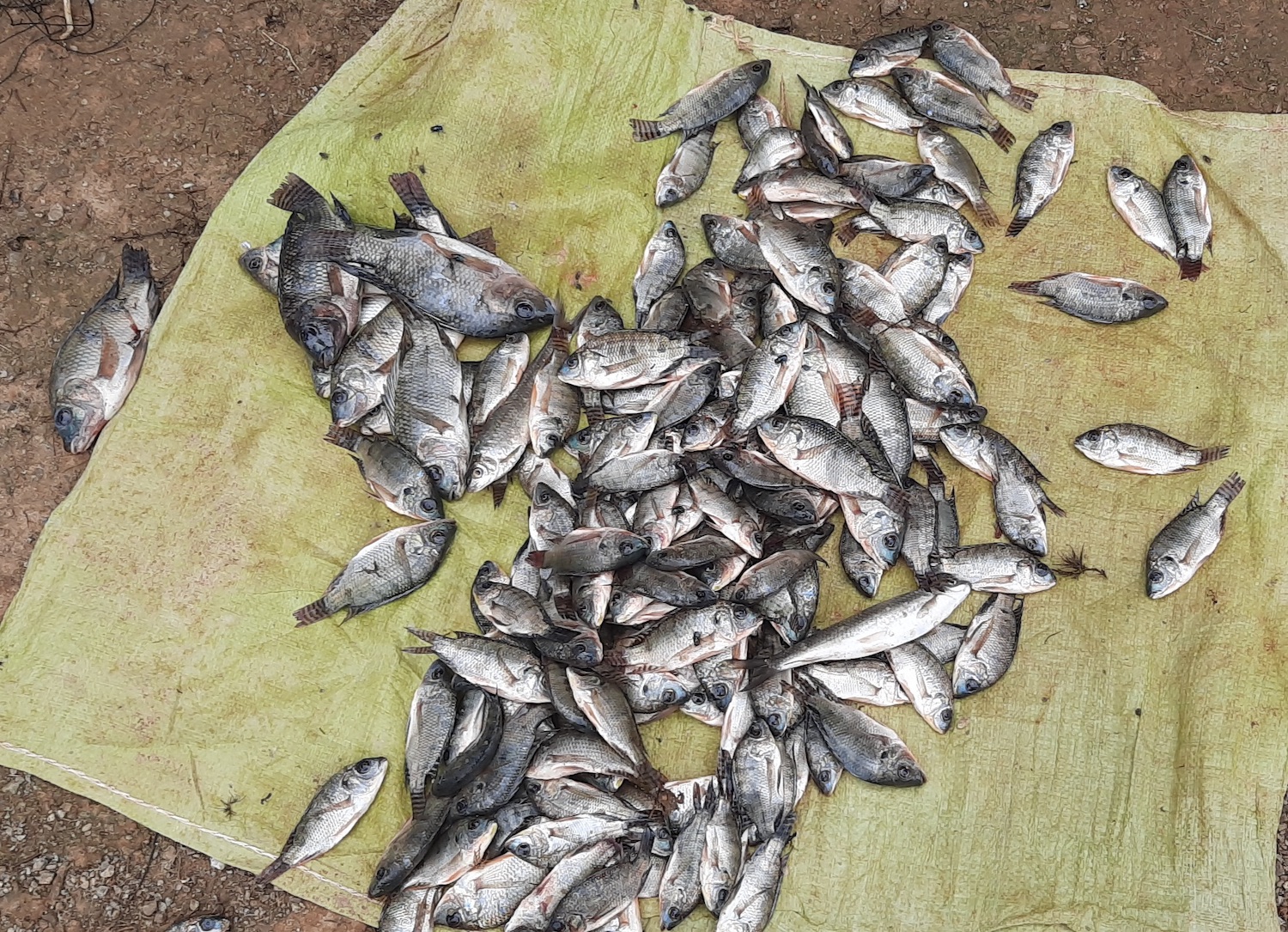Former political exile and Chair of the Democratic Party for a New Society U Aung Moe Zaw is disappointed with the National League for Democracy government.
By NAW BETTY HAN | FRONTIER
U Aung Moe Zaw, 53, has devoted much of his life to the struggle for democracy in Myanmar. He spent 22 years as a political exile and was one of the most prominent among them to accept President U Thein Sein’s 2011 invitation to return and help build a more democratic nation.
But the former student activist will not be standing in the November election for the Democratic Party for a New Society – the party he chairs.
It’s not because the indefatigable activist doesn’t want to.
Section 120c of the 2008 Constitution stipulates that candidates must have lived in Myanmar for 10 consecutive years before election day, and Aung Moe Zaw made good on the Thein Sein invitation in 2012.
That September, on his first visit home before deciding to permanently return, Aung Moe Zaw met with officials from Thein Sein’s Union Solidarity and Development Party government to discuss registering the DPNS for a second time. It had stood for seats in the 1990 election before being declared illegal by the military junta.
“I was very excited to be able to organise and register the DPNS as a political party again,” Aung Moe Zaw recalled during an August 11 interview at the party’s office in downtown Yangon’s Pazundaung Township.
He and several other DPNS working committee members had six meetings with government officials between February and December that year. At the time, scepticism among democracy activists and others about the USDP government was beginning to give way to a cautious optimism. Thein Sein had met with National League for Democracy leader Daw Aung San Suu Kyi in August 2011 and decided to suspend work on the Chinese-backed Myitsone Dam project in September. He’d also embarked on a series of reforms that included an end to the pre-publication censorship of media.
“We all came back for the 25th anniversary of the 8888 uprising, on August 8, 2013,” Aung Moe Zaw said.
It was that uprising – in which Aung Moe Zaw, as a student leader, played a key role – that led to the founding of the DPNS. It had emerged from the All Burma Students League and was part of a broader movement agitating for democratic reform. With about 250,000 members, it was the second largest party after the NLD.
Aung Moe Zaw said his political consciousness was awakened when he was an English student at Yangon University. It was there, in the late 1980s, that he joined protests against dictator General Ne Win’s decision, in September 1987, to demonetize K25, K35 and K75 notes – about 80 percent of the money in circulation – without offering compensation to bill holders. Life savings were wiped out overnight. An infamous teashop brawl the following March led to protests where the military shot two students dead, sparking what became the 8888 uprising.
On September 18, after a Tatmadaw-led coup d’etat, Ne Win resigned, and the ruling junta that was installed – the State Law and Order Restoration Council – promised to hold multi-party elections. On May 27, 1990, the NLD won in a landslide, but the SLORC refused to honour the results. After declaring the parties illegal, they detained 1,500 DPNS members, including its core leaders. Aung Moe Zaw fled through Shan State to Manerplaw, then the headquarters of the Karen National Union.
There, on October 14, 1988, the DPNS was founded.
“We began a process of trying to overthrow the military dictatorship that continues today under the banner of the party,” he told Frontier.
The party established its headquarters in Manerplaw in November 1991. The place was teeming with democracy activists and ethnic armed groups, gathered to continue their struggle against the military regime. They included the Forum for Democracy in Burma and the Student and Youth Congress of Burma, of which Aung Moe Zaw was a co-founder. He also served as general secretary of the Democratic Alliance of Burma from 2001-2004, and from 2002-2004 he was general secretary of the National Council of the Union of Burma, the self-described government in exile.
After Thein Sein launched the peace process in 2011, he dispatched Minister of the President’s Office and retired major general U Aung Min, who also chaired the Myanmar Peace Center, to hold talks with the KNU near the Thai-Myanmar border, which resulted in the signing of a bilateral ceasefire in January 2012.
The visit provided an opportunity for Aung Moe Zaw and other DPNS central committee members to meet Aung Min, who carried Thein Sein’s invitation to them. Aung Min promised that, upon their return, they would have the government’s support in restoring their citizenship and re-registering the party.
Aung Moe Zaw said he had to wait a year to receive his national identity card – necessary for him to register the party, which he did in 2014.
NLD rule has not been what he’d expected. He said he’s disappointed with his old ally’s readiness to distance itself from the activists it worked alongside for so long in the movement. They’ve also made too little progress toward real democracy, he said. But he understands that nobody gets there overnight.
“The problem of our country is the problem of military dictatorship. The civil war has been raging for more than 70 years. There are many general problems and it is difficult to solve them in four or five years” he said.
Still, he said the Thein Sein government did a better job of including the DPNS in peace negotiations than the NLD government, which “doesn’t care” about the groups it used to work with. He predicted fewer NLD votes this year than in the previous general election. “[They] won’t win a landslide like in 2015,” he said. “New candidates from new parties will perform well.”
Of course, that doesn’t mean the end of the party.
“Criticism of the NLD is limited to the intellectual community; at the bottom, it still has support,” he said.
Aung Moe Zaw also joined the chorus of criticism directed at the Union Election Commission, which he accused of being subordinate to the ruling party.
The DPNS is fielding 16 candidates, who are seeking election to the Pyithu Hluttaw and state and regional assemblies – three of which, he said, who are Muslims, a group often barred from running by discriminatory citizenship and electoral laws.
“No one should be left behind if we really want to build a democratic union,” he told Frontier in July. “I have a strong belief that everybody deserves to enjoy equal rights. I have been fighting for it since 1988. I’m still sticking to that.”


